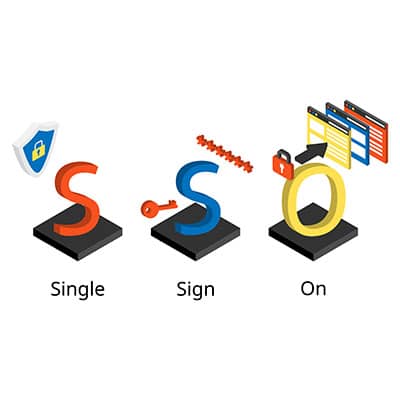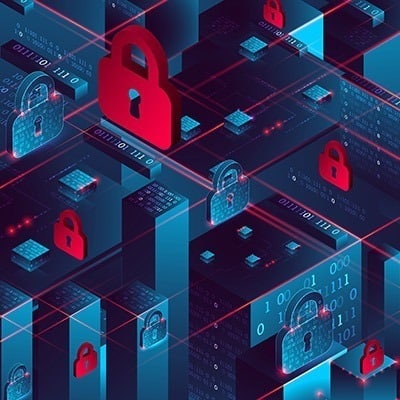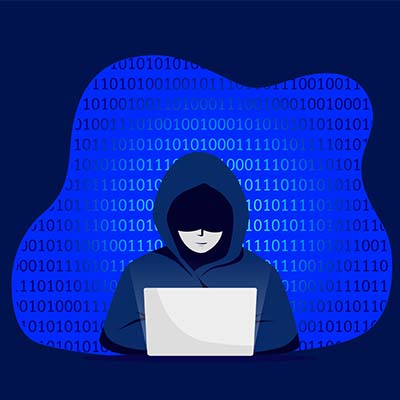When we think of resilience in the tech world, Nokia phones often come to mind. Renowned for their durability, Nokia devices have survived everything from drops to spills. It begs the question – is your technology as tough as a Nokia phone? At SRS Networks, we’re putting our own technology to the test with a metaphorical drop-test on our computers. Let’s explore the importance of resilience in the digital realm and how partnering with SRS Networks ensures that your technology stands up to the challenges it may face. The Nokia Resilience Legacy: Lessons in Durability: Surviving Drops: Nokia phones have famously survived falls from considerable heights, showcasing their robust build. Water-Resistant Design: Many Nokia devices boast water-resistant features, proving their resilience against unexpected spills. Longevity and Reliability: Nokia’s reputation is built on the longevity and reliability of its devices, enduring the test of time. The Digital Drop-Test by SRS Networks: Ensuring Your Technology’s Toughness: Robust Cybersecurity Measures: We implement resilient cybersecurity strategies to protect your digital assets from potential threats and breaches. Data Backup and Recovery Plans: In the event of a digital “drop,” our data backup and recovery plans ensure that your critical information remains intact. Proactive Maintenance: Just like Nokia’s reliability, we believe in proactive maintenance to prevent technology hiccups before they become major issues. Partnering with SRS Networks for Digital Resilience: Comprehensive Tech Resilience Plans: Our team develops customized resilience plans to address the unique needs and challenges of your business. 24/7 Support: With round-the-clock support, we’re always here to ensure that your technology remains resilient and operational. Future-Proofing Strategies: Anticipating future challenges, we implement strategies to future-proof your technology and keep it ahead of the curve. In a world where digital resilience is paramount, SRS Networks stands out as your partner in ensuring that your technology can withstand the metaphorical drop-tests of the digital landscape. Just like Nokia phones, we believe in building technology that endures, survives, and remains operational despite the challenges it may face. Ready to test your technology’s toughness? Partner with SRS Networks, and let’s ensure your digital assets can stand up to the rigors of the digital world.
In the world of cybersecurity, thinking outside the box is often the key to success. At SRS Networks, we introduce you to a unique strategy – Mime Cybersecurity. While it may sound unconventional, it’s surprisingly more effective than the cybersecurity measures many businesses are currently employing. Let’s explore this innovative approach and why it might be the silent guardian your digital assets need. Mime Cybersecurity Unveiled: The Silent Power of Mimes: Invisible Barriers: Mimes are experts at creating invisible walls, and in the digital realm, these barriers can thwart cyber threats without making a sound. Gesture Encryption: Mimes communicate through gestures, and in Mime Cybersecurity, these gestures are like an encryption code that keeps your data secure. Silent Alarms: Mimes excel at silent communication. In the cyber world, silent alarms can detect and neutralize threats without alerting potential intruders. Why Mime Cybersecurity Works: Advantages Over Traditional Measures: Unpredictability: Mimes bring an element of surprise to cybersecurity, making it challenging for hackers to predict and circumvent defenses. Non-Verbal Communication: In a world dominated by code and algorithms, the silent language of mimes offers a unique and non-verbal layer of communication. Stealth Protection: Mime Cybersecurity operates silently in the background, offering robust protection without the need for constant alerts and disruptions. Partnering with SRS Networks for Mime Cybersecurity: Innovative Solutions: We believe in pushing the boundaries of cybersecurity to offer innovative and effective solutions. Tailored Mime Strategies: Our team customizes Mime Cybersecurity strategies to address the unique vulnerabilities of your business. Silent Vigilance: Like a vigilant mime on a digital street corner, our Mime Cybersecurity silently ensures the safety and security of your digital assets. In a world where traditional cybersecurity measures may not be enough, Mime Cybersecurity stands out as an unconventional yet remarkably effective approach. Partner with SRS Networks to embrace innovation and safeguard your business with the silent power of mimes. Let’s work together to create a cybersecurity strategy that speaks volumes in the language of mime, ensuring your digital assets are protected from unseen threats.
One of the ways that businesses have approached the issue of having to log into multiple different accounts, applications, websites, and services is through the use of single sign-on solutions. It’s a common technology that you might see just about every day, but how does it work, and what kind of security can you expect from it?
Today’s blog might seem a bit simple, and that’s because it is. Your network security is going to play a huge part in the operations and functionality of your business, whether you realize it or not. In fact, your network security might be the only thing keeping your business in proper working order. We’re going to discuss some of the less-obvious reasons why security is beneficial for businesses like yours.
Cyberwarfare has continued to evolve in sophisticated ways, and while security researchers try their best to keep up, hackers are always trying to outdo them. One example of such attacks, which are often sponsored by government agencies, is a recent attack on the United States and Israeli technology sectors, which have become the target of password spraying campaigns.
If we told you that it is possible for others to hire hackers to launch attacks against your business, would you believe it? Well, we hope so, because it is very possible and more common than you might think. Comparitech launched an investigation into the average prices of various hacking services on the Dark Web, and you might be surprised by how affordable and accessible they are. This is just more reason to take network security seriously.
When it comes to network security, there are a lot of complex solutions that solve multi-faceted issues, some so mind-boggling in scope that it is simply overwhelming. Then there are the small-scale solutions that you can implement on a day-to-day basis that can make significant changes over time. Locking your computer is one of these tactics, and it should not be overlooked in your security strategy.
Understanding the Value of Your Data In the realm of cybersecurity, the first step to protection is recognizing the value of your digital assets. Every piece of data—from customer information to intellectual property—carries its own worth and associated risks. The key is to evaluate which data is most critical and could cause significant harm if compromised. This prioritization forms the foundation of a targeted defense strategy that shields the most valuable assets while managing overall risk. Strategies from Leading Experts Insights from McKinsey on Cyber Resilience According to McKinsey, organizations must adopt a layered approach to cybersecurity. This involves not only defending against potential attacks but also preparing to respond effectively if an attack occurs. McKinsey emphasizes the importance of understanding the threat landscape, which includes staying informed about the methods and tactics used by cyber adversaries. Read more about their insights here. Proactive Crisis Management Strategies from Forbes Forbes highlights the importance of proactive crisis management in cybersecurity. It suggests three powerful strategies: developing a comprehensive understanding of potential cyber threats, implementing robust monitoring systems, and cultivating a culture of security awareness across all levels of the organization. Explore the Forbes article on managing cyber threats. Proactive Cybersecurity Measures Designing an Effective Response Plan Being proactive is about more than just anticipating threats; it involves having a detailed response strategy ready to deploy. This plan should outline steps to take the moment a potential threat is detected, including containment strategies and communication protocols to minimize disruption and protect sensitive information. Employee Training and Awareness Programs A well-informed workforce can be your best defense against cyber threats. Regular training sessions should be implemented to educate employees about the latest cyber threats and the best practices for preventing them. These programs not only help in recognizing potential security breaches but also in promoting a culture of security within the organization. Innovative Approaches to Cybersecurity Keeping Up with the Evolution of Cyber Threats As cyber threats evolve, so should your cybersecurity strategies. This means staying ahead of trends, adopting new technologies, and continuously assessing and improving your security posture. Innovation in cybersecurity is not just about using new tools, but also about thinking creatively to anticipate and mitigate future threats. Implementing Cutting-edge Technologies in Cybersecurity Leveraging advanced technologies like artificial intelligence (AI), machine learning, and blockchain can significantly enhance your cybersecurity measures. These technologies can help in automating threat detection and response, as well as securing transactions and data storage. SRS Networks: Your Partner in Cybersecurity SRS Networks is dedicated to providing state-of-the-art cybersecurity solutions that are tailored to the unique needs of your organization. From initial assessments to comprehensive protection plans, SRS Networks empowers businesses to defend themselves in the digital age. Explore our Network Security Services and Unified Threat Management Solutions to see how we can enhance your cybersecurity infrastructure. Contact Information: SRS Networks, Phone: 831-758-3636 Frequently Asked Questions How can I assess the value of my data? What are the most effective strategies to prevent cyberattacks? How often should cybersecurity training be conducted? What technologies are leading the way in cybersecurity? How do I develop a cyber incident response plan? Can small businesses afford advanced cybersecurity measures? Conclusion Understanding and implementing effective cybersecurity measures is essential for any organization looking to protect itself in today’s digital world. By valuing
What Do Our Smart Assistants Actually Hear? We all know that person that claims that the smart assistants are being hacked into by the government and they are listening into our conversations. For the majority of us, that conspiracy doesn’t make a whole lot of sense. That said, these devices do listen, when they are prompted to. Here is how to trigger four of the most popular assistants: Amazon Alexa devices respond to the term “Alexa,” ”Computer,” ”Amazon,” or “Echo.” Google Home devices wake up to “Okay/Hey, Google.” Apple’s Siri responds to “Hey Siri.” Microsoft’s Cortana reacts to its name, “Cortana,” or “Hey, Cortana.” There have, in fact, been instances where these smart assistants, and especially with the smart speakers, pick up some things they weren’t supposed to. If you have one of these speakers in your home, there have to be some natural security concerns, but they probably aren’t from the manufacturers. The Analysis Researchers looked into the question of what exactly these smart assistants hear and formed a paper titled, Unacceptable, where is my privacy? Exploring Accidental Triggers of Smart Speakers. They analyzed when the terms that successfully activated the assistants were spoken, finishing with over a thousand phrases. They then further analyzed them into their phonetic sounds to try and ascertain why there were so many false positives. Depending on how a user pronounced a word, some triggers were found, including: Alexa devices also responded to “unacceptable” and “election,” while “tobacco” could stand in for the wake word “Echo.” Furthermore, “and the zone” was mistaken for “Amazon.” Google Home devices would wake up to “Okay, cool.” Apple’s Siri also reacted to “a city.” Microsoft’s Cortana could be activated by “Montana.” Of course, these assistants are used on devices all over the world, and as a result found that when used in other languages had a lot of the same issues. For example, the German phrase for “On Sunday” (“Am Sonntag”) was commonly mistaken for “Amazon.” What Does This Mean for Individual Privacy? Even with the interesting nature of this analysis, the findings are a little more disconcerting. The study shows that once the wake word or phrase is recognized by the device, it immediately starts listening for queries, commands, and the like. So even though they claim to only start listening when prompted to, several different iterations of phrases can cause the assistant to start listening. The complications don’t end there, since the data is reviewed manually by people—which already destroys any notion of privacy—one of those technicians could potentially be given information that wasn’t intended to be captured by an assistant. This could potentially be devastating if the technician whose job is to manually check this information were to gain access to account information or some other PII and use it in an unethical way. The smart speaker, and smart assistant are useful products that need a little more refinement before we can completely trust them. To learn more about new technology and how it is being used, check back to our blog regularly.
However, despite these views, most people are far too lax when it comes to their own security. Let’s take a closer look. Consumers on Businesses and Their Data Practices In a recent report from advisory firm KPMG, the results of a survey that asked American consumers about their expectations of corporations and the privacy of their collected data were revealed. These results showed a few concerns very clearly, while revealing that not all respondents were fully aware of today’s most pressing cyberattacks. 86 percent of respondents to the survey felt that their data privacy was a rising concern. 70 percent claimed to be “generally familiar” with how companies collect their personal data, while 64 percent were familiar with how it was used and stored, 63 percent say they understand how it is protected, and 57 percent say they know how it is sold. Having said that, 68 percent don’t trust these companies to sell this data ethically, 54 percent don’t trust it will be used ethically, 53 percent don’t feel it will be collected ethically, and 50 percent don’t trust these companies to protect their data sufficiently. Most consumers are concerned about the theft of their social security number, with 83 percent of respondents identifying this concern. Following closely behind come the 69 percent worried about their credit card numbers. Surprisingly, only 16 percent are concerned about the theft of their medical records. Data Practices Amongst Consumers While this sounds like a decent start, the survey’s results showed a bit of hypocrisy. Most users agreed that repeating passwords, saving credit card information to a website, and using public Wi-Fi are risky behaviors, but more than 40 percent of them did these things anyways. 61 percent neglected to use all available tools to secure their accounts, as well. What We Can Learn It doesn’t matter if it’s your data at stake, or your business’… your highest priority needs to be your security. In another study, this one conducted by Harvard Business Review Analytic Services, it was shown that almost half—46 percent—of consumers surveyed had stopped doing business with a retailer because of issues with that retailer’s privacy statement. Are you willing to let half of your client base abandon your business? It just goes to show that, from the consumer’s perspective, it is our responsibility to make sure that companies are accountable for the data they collect. From the business standpoint, it shows that data security is something that can’t be slapped together or neglected. Is ensuring data security simple? Far from it… but when compared to what you risk otherwise, it’s a no-brainer. SRS Networks is here to help. We can help you to implement the security solutions and processes that will help protect all your data. To learn more, or to get started, call our team at (831) 758-3636 today.
- 1
- 2








